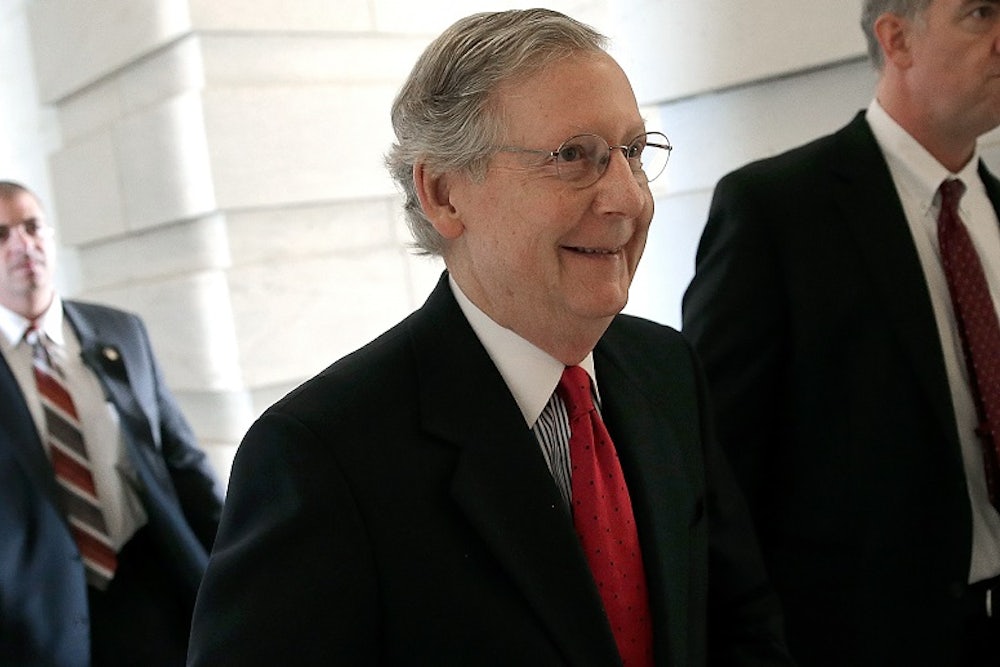Mitch McConnell took to the Senate floor Wednesday morning to denounce Democrats' supposed failed economic policies and provide a blueprint of an alternative, Republican agenda. “While the Obama administration has been playing politics,” the Senate minority leader said, “Republicans have been quietly assembling a lot of good ideas aimed at helping middle-class Americans deal with the stresses of a modern economy.”
The exact opposite of that sentence is true.
The Great Recession left a massive hole in aggregate demand—demand for goods and services by consumers—in the U.S. economy. When the financial crisis hit, millions of Americans reduced their spending. That forced businesses to cut back and lay off workers. Those workers then cut back on their own spending, and the cycle repeated itself. In economics, this is known as the paradox of thrift.
The government has two policy options to fill the gap in demand: fiscal or monetary stimulus. The U.S. tried both. And while both partially succeeded, neither was enough to entirely restore the economy to full employment. The American Recovery and Reinvestment Act—also known as the stimulus—added more than $700 billion to the economy between 2009 and 2011. The Federal Reserve cut its interest rate to zero in 2009. This zero-interest-rate-policy (ZIRP) continues to this day, incentivizing firms to invest and Americans to purchase homes and automobiles. Yet, ZIRP wasn’t enough. The Fed also undertook unconventional monetary policies. For instance, it purchased trillions of dollars of Treasuries and mortgage-backed securities to try to lower long-term interest rates even further.
These measures didn't return the economy to full employment, but we avoided a second Great Depression. Meanwhile, Republicans peddled an economic platform that included neither fiscal nor monetary stimulus. In other words, they never had and still do not have a jobs plan. Yet, in McConnell’s world, Senate Democrats and Obama are the ones to blame for not offering a credible economic agenda.
“For five and a half years, the Obama administration and its allies in Congress have sought cover for their disastrous economic agenda with routine broad sides against an endless procession of straw men,” he said. “Instead of working with us on ideas that would actually do something to alleviate the concerns and anxieties of the middle class, these Democrat leaders have been blissfully content to play politics year after year after year. Instead of delivering relief, they have delivered a steady diet of bad political theatre day in and day out."
The minority leader then rattled off a list of GOP bills intended to create jobs including policies that weaken union protections, support charter schools, and increase tax breaks. Wherever you fall on the efficacy of these proposals—and I would disagree with many of them—they are fundamentally not an alternative to the Democratic jobs plan over the past five-plus years. The GOP's policies might help long-term economic growth; as the economy slowly returns to full employment, they will represent a legitimate economic agenda. But until then, it's McConnell and his cohort who are playing politics with the economy.
